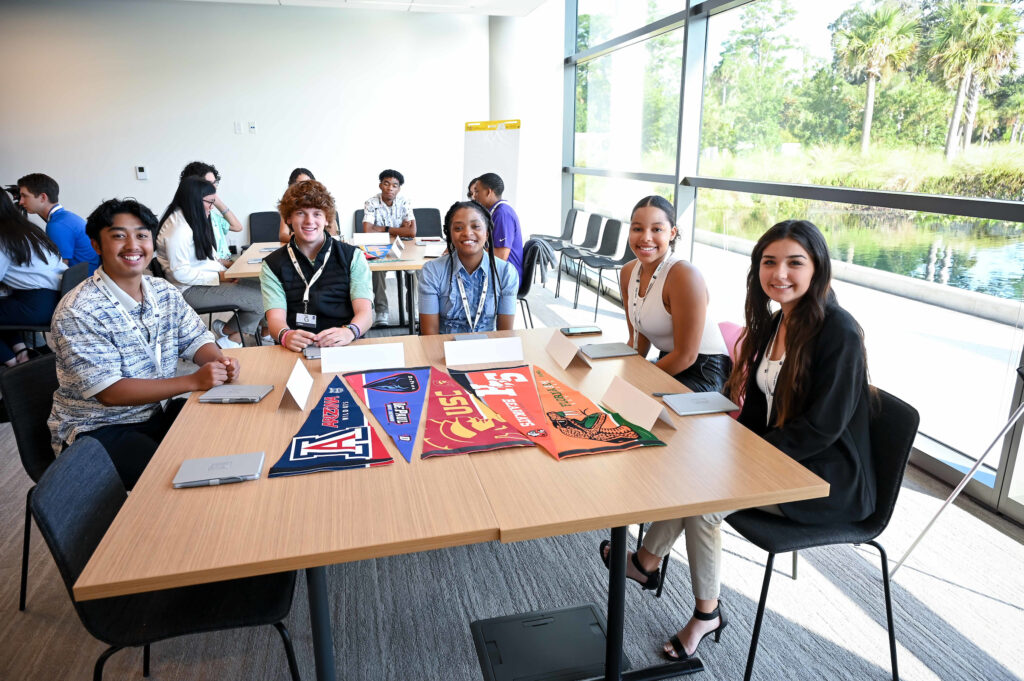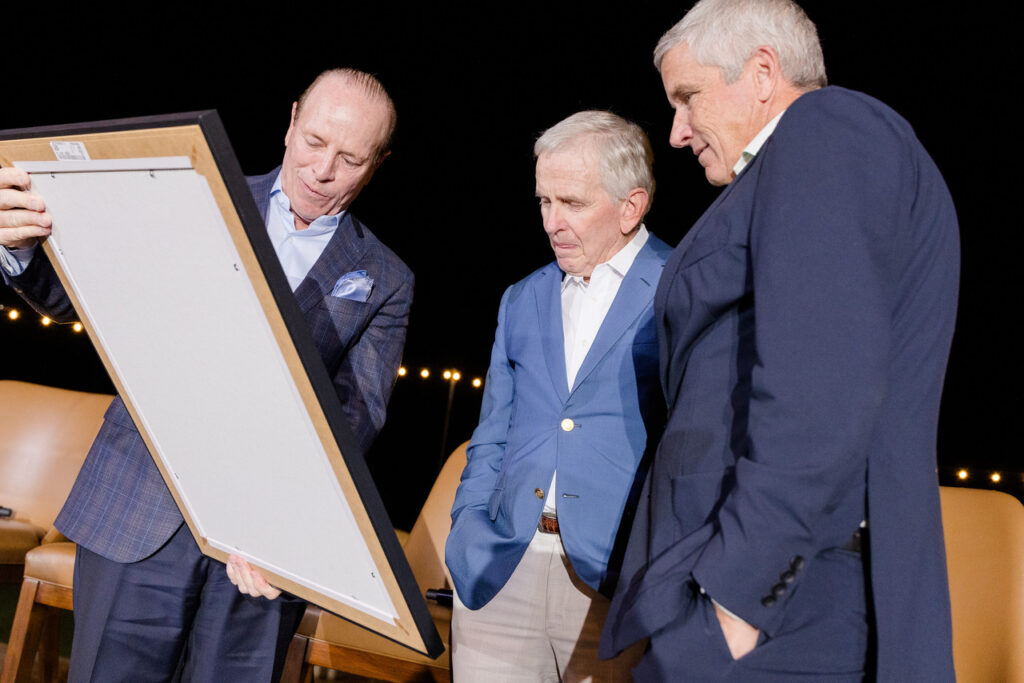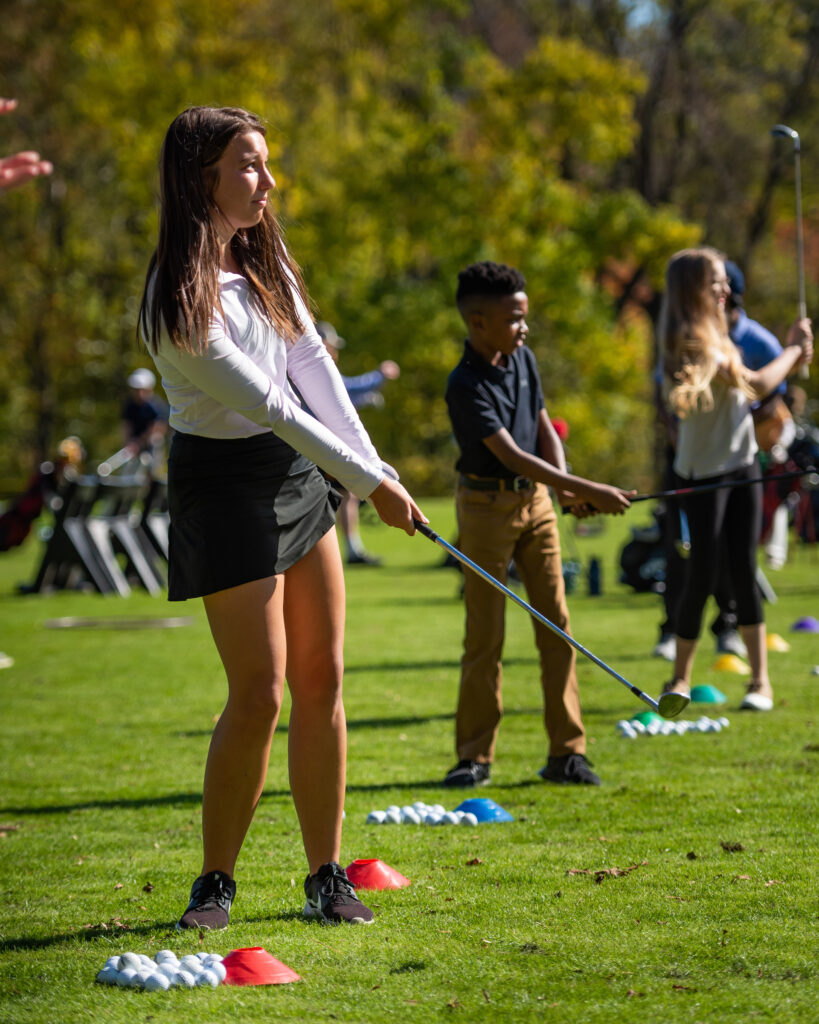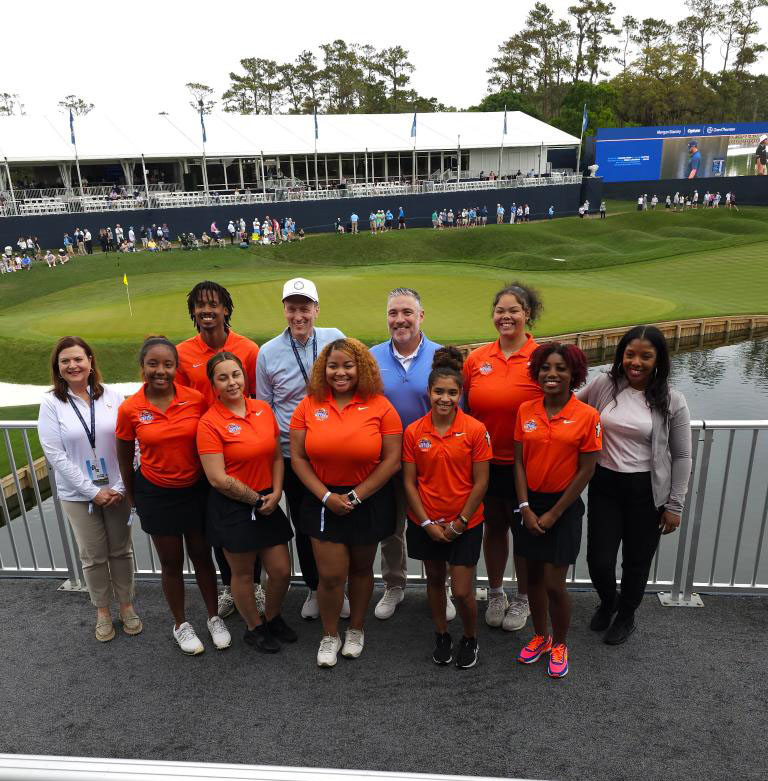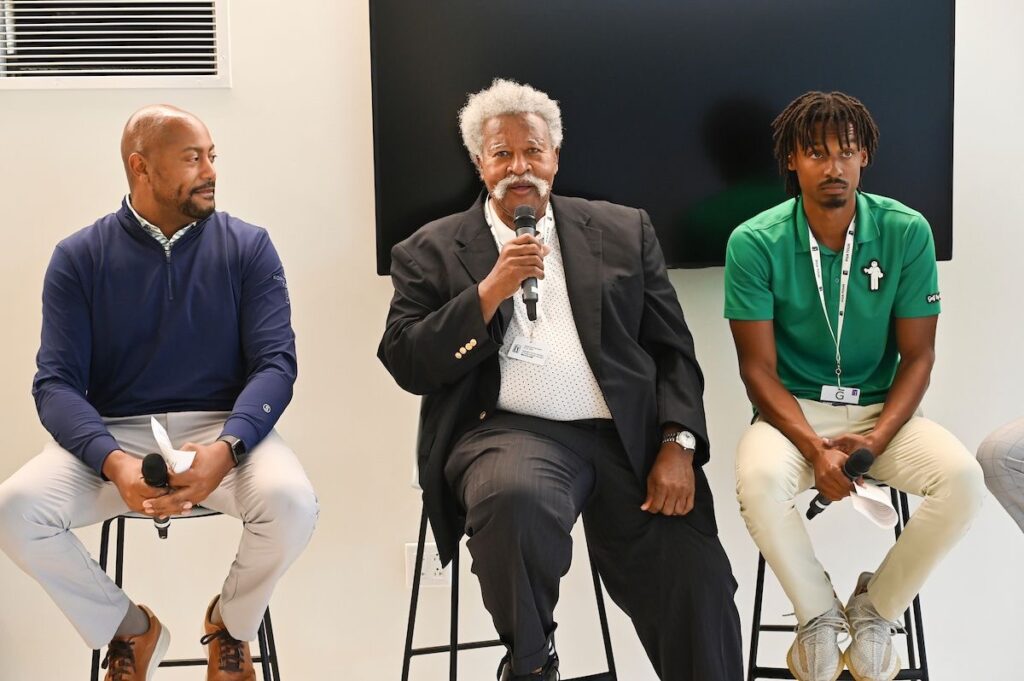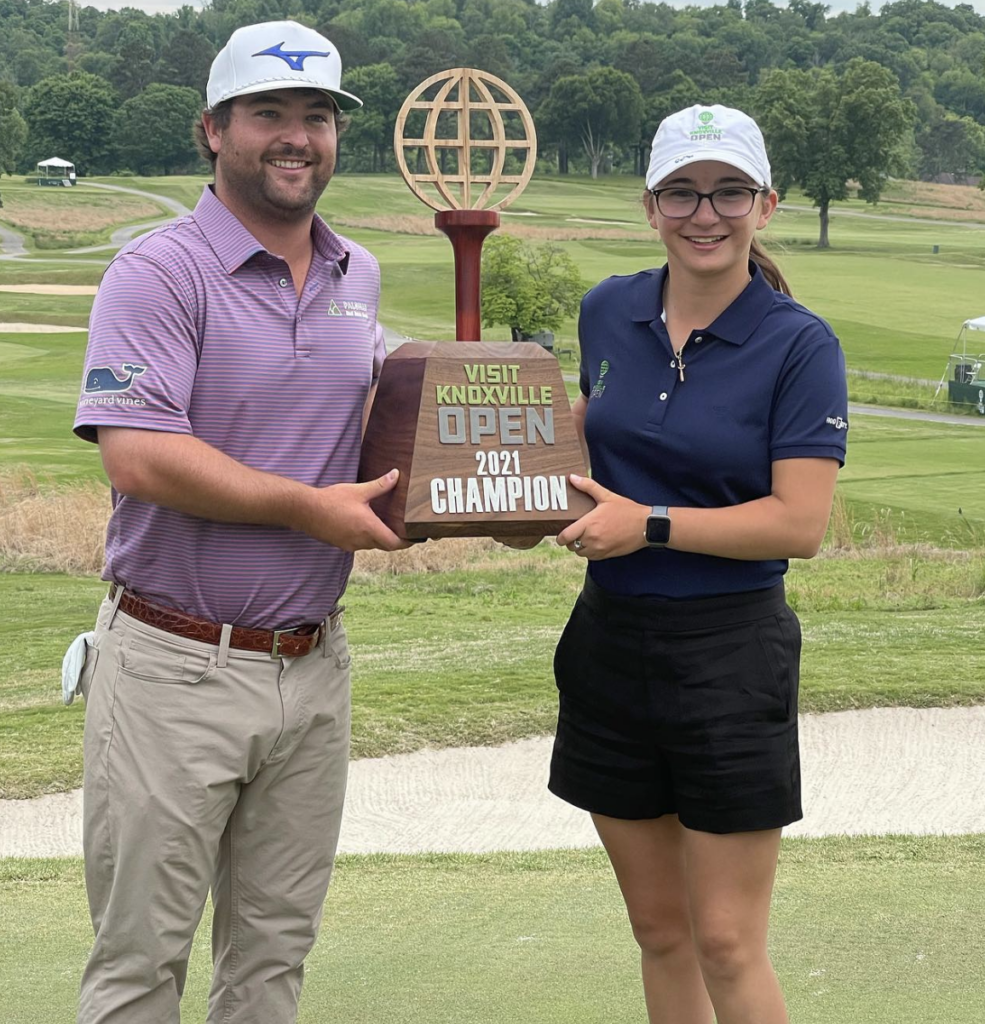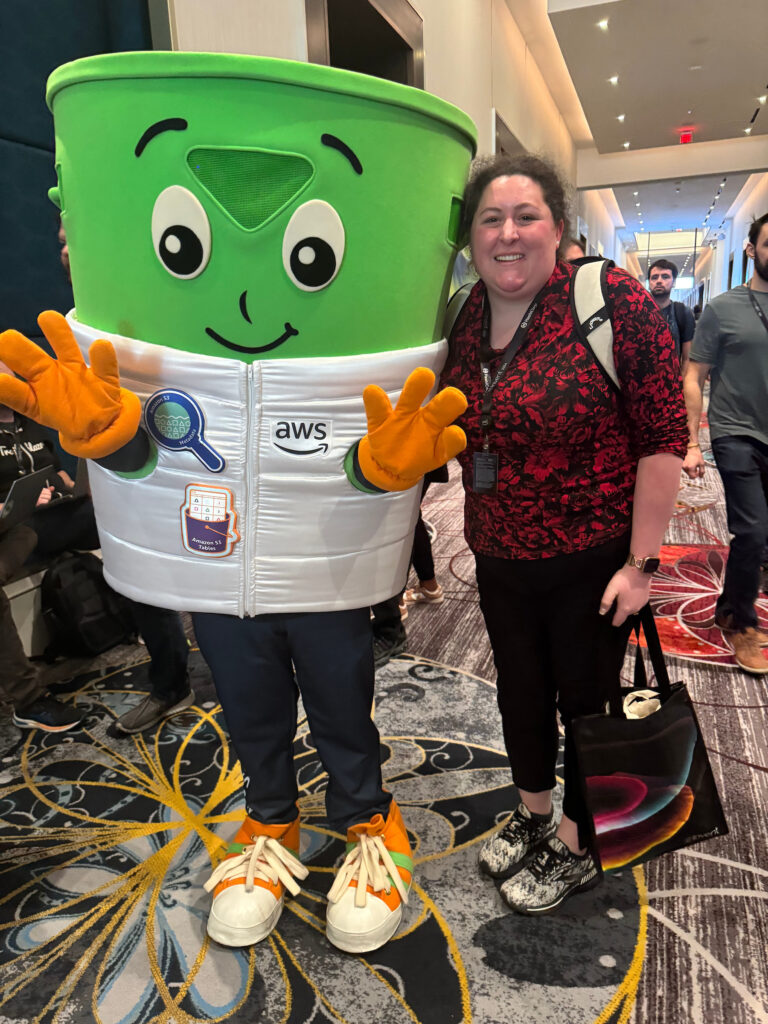
As a participant in First Tee – Delaware, Grace Lombardi said she learned not only the fundamentals of golf but also some of life’s most valuable lessons. Confidence and perseverance are values that have helped Grace overcome obstacles and carve a path into the world of cybersecurity, an industry where women are still a minority.
“Confidence empowered me to take on challenges, whether it was mastering complex security concepts, earning certifications or speaking up in technical discussions,” she said. “At the same time, perseverance kept me moving forward despite obstacles, from overcoming imposter syndrome to pushing through rigorous training and setbacks.”
Grace recently began working in AWS Professional Services, supporting national security as a cloud engineering consultant. In this role, she works with clients in the federal government, helping them leverage AWS solutions to enhance their operations.
Grace said she’s proud to work for an organization that’s a major supporter of First Tee. AWS joined First Tee as a Trustee in 2021. With a dedicated team, AWS supports participants through STEM programming, employee volunteerism and alumni support. In 2024, AWS invited a select First Tee alumni to AWS re:Invent, the world’s largest annual cloud computing conference.
At re:Invent, Grace was able to attend several workshops. “I highly encourage any First Tee alumni to attend re:Invent if they get the chance,” she said. “While it’s a tech conference, the wealth of knowledge, networking opportunities and exposure to innovation make it valuable for professionals in any field.”
Forging a path in cybersecurity
Golf isn’t easy, and resilience is a trait Grace picked up during her seven years as a First Tee participant.
She said it’s important for her to stay involved with the organization because she wants to give back to the next generation. “First Tee gave me the opportunity to have so many amazing experiences across the country, and I learned so much while meeting incredible people,” she said.
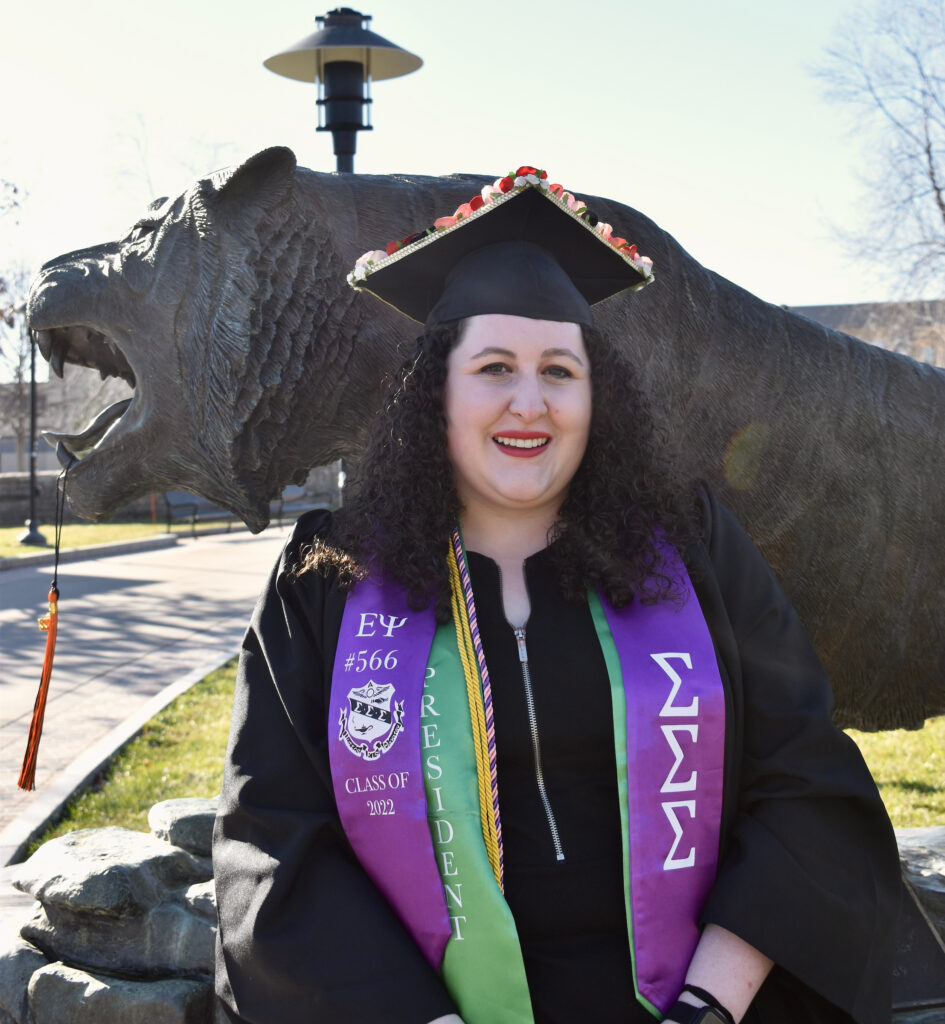
Grace always knew she wanted a career that would challenge her. When she was a high school sophomore, she got an invitation that would change her life. A friend asked her to tag along to a cybersecurity conference because he didn’t want to go alone. She participated in a digital capture-the-flag competition, and the rest is history.
“I had no idea what I was doing, but I had an absolute blast and learned so much from the other attendees,” she said. She was struck by how much people seemed to enjoy their work in cybersecurity, and a new career path was on her radar.
Grace enrolled in coding classes at a local community college, before attending Rochester Institute of Technology as an undergrad and graduate student. She spent more than two years working for federal agencies before joining AWS.
“Looking back, what started as an unexpected experience at a conference in high school turned into a fulfilling career built on curiosity, problem solving and a drive to make a real impact,” she said. She felt the same type of excitement at re:Invent. “It opened the door to incredible opportunities, deepened my technical knowledge and ultimately paved the way for my career at AWS,” she said.
“Grace’s story illustrates the powerful impact of relationships like AWS and First Tee in shaping future leaders,” said Ebony Taylor, head of global executive customer engagement at AWS Professional Services. “Her journey from learning golf fundamentals to becoming a cloud engineering consultant demonstrates how confidence and perseverance can drive success in technology fields.”
“At AWS, we value individuals who aren’t afraid to dive deep into new challenges and continuously learn. We’re proud to support organizations like First Tee that help develop well-rounded professionals who can make meaningful contributions to critical fields like cybersecurity, and we’re happy to create pathways for more talented individuals like Grace to thrive in technology careers,” Taylor said.
Learn more about the First Tee Alumni Network, which provides professional development and social opportunities across the country.



